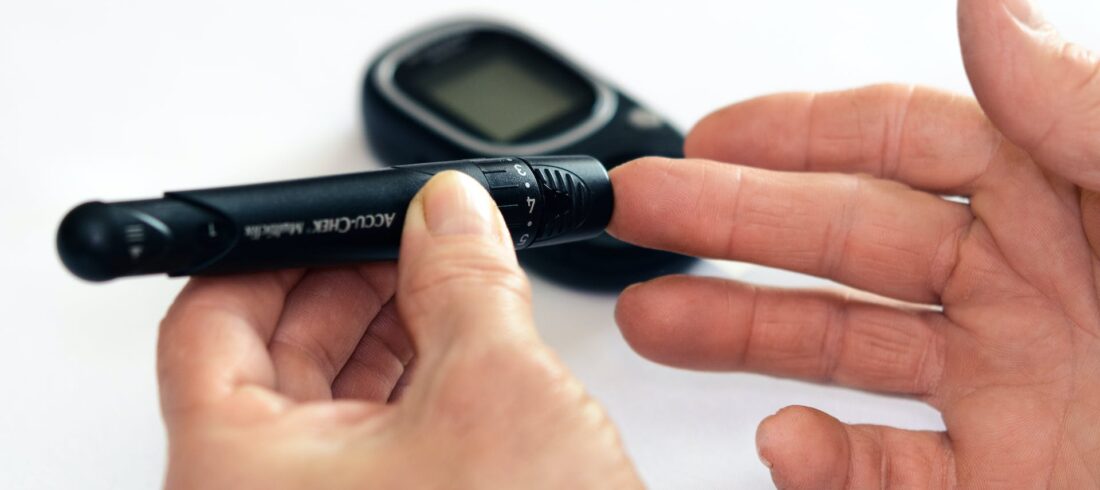Diabetes and heart health are intricately linked and require careful attention and management. According to the World Health Organization (WHO), cardiovascular diseases are the leading cause of death globally, and individuals with diabetes are at a significantly higher risk.* While managing a diabetes diagnosis can feel intimidating, there are easy and effective ways to alleviate the risks to lead a healthy and normal life.
Understanding the Connection Between Diabetes and Heart Health
Diabetes, particularly type 2 diabetes, often involves insulin resistance. When you eat food your blood sugars naturally rise and respond with insulin. Constantly elevated and high blood sugars require the body to produce more insulin more often. Repeated insulin production inhibits the body’s overall ability to respond effectively with insulin when blood sugar levels are elevated. Insulin resistance is like “the boy who cried wolf”; eventually, your body stops responding with enough insulin to regulate your blood sugar. As your insulin sensitivity decreases your blood sugars remain high, which results in inflammation. Over time, this chronic inflammation can lead to cardiovascular diseases, affecting the arteries and increasing the risk of heart problems such as high blood pressure.
Chronic inflammation can be a common side effect of diabetes. Patients who make even minor adjustments in their diet and exercise see significantly improved physical inflammation levels. Just imagine what that reduction can do for your heart!
Diabetes can alter the balance of cholesterol levels in the body. Cholesterol is a fat-like substance found in all cells. There are two types of cholesterol in the body. Diabetes can cause Low-density lipoprotein (LDL) cholesterol, often referred to as “bad” cholesterol, to increase. Diabetes affects blood sugar levels and blood sugar can impact cholesterol. Diabetic patients often see lower levels of High-density lipoprotein (HDL) cholesterol, known as “good” cholesterol. This imbalance further contributes to the risk of heart disease.
High blood sugar levels, which can occur regularly in those with diabetes, can damage blood vessels over time. Due to elevated cholesterol levels in diabetic patients, this long-term damage to the blood vessels contributes to the development of atherosclerosis. Atherosclerosis is a condition that is characterized by the buildup of plaque in the arteries. When you don’t use or burn the carbohydrates and sugar from your meals for energy your body begins the process of storing them elsewhere. Excess blood sugar increases cholesterol which contributes to the build-up of this plaque in your arteries. Atherosclerosis restricts blood flow, leading to conditions such as coronary artery disease, heart attacks, and strokes. Diabetes is also often associated with high blood pressure (hypertension), another significant risk factor for heart disease. The combination of diabetes and high blood pressure can accelerate the progression of cardiovascular complications.
Managing Diabetes and Promoting Heart Health
There are simple and effective ways to manage your diabetes diagnosis and promote your heart health. A healthy diet and moderate exercise are common prescriptions for managing your health but let’s see how it is linked directly to managing your diabetes.
Healthy Eating Habits:
Certain foods and ingredients cause elevated blood sugars more often and more easily. Diets that are heavy in carbohydrates (rice, pasta, bread, fast food) and sugar (desserts, cereal, syrups, coffees) are more likely to cause a spike in blood sugar. A diabetic-friendly lifestyle does not eliminate food groups and ingredients but rather balances them with choices that can sustain normal blood sugar levels.
Emphasize whole foods, fruits, vegetables, lean proteins, and whole grains while limiting saturated and trans fats, sodium, and refined sugars. If you enjoy a big bowl of pasta for dinner you can easily incorporate a protein (like chicken) and a salad to balance the carbohydrates and keep your sugar levels healthy and happy!
Regular Exercise:
Physical activity is a cornerstone of diabetes management, heart health, and overall wellness. Regular exercise helps control blood sugar levels, improves insulin sensitivity, and contributes to weight management. A 10-15 minute walk after a high carbohydrate or sugar dinner/dessert can lower your post-meal blood sugar by 15-20 points!** Movement after a meal uses the carbohydrates as fuel immediately which can prevent the storage of that energy as fat in the long run.
Blood Sugar Monitoring:
A great way to understand how certain foods and exercise affect your blood sugar and your wellness is by monitoring your blood sugar. Diabetes testing kits and CGM (continuous glucose monitors) are effective ways of seeing in real time how what you consume affects your blood sugar. If your sugar is high you then know what steps to take. Consistently maintaining target blood sugar levels can reduce the risk of complications and promote overall heart health.
Medication Adherence:
Diet and exercise-controlled diabetes can be difficult if you’ve never had to implement changes into your lifestyle. Some patients require medication at the start of their management until they understand how best to manage. If prescribed medication for diabetes or related conditions, adhere to your treatment plan diligently. Medications play a vital role in managing blood sugar levels, blood pressure, and cholesterol, reducing the risk of cardiovascular complications. With proper diabetes and health education, some patients even see enough improvement to discontinue medication in the long term.
Regular Health Check-ups:
Schedule regular check-ups with your healthcare provider to monitor your diabetes and assess cardiovascular risk factors. Early detection and intervention can significantly impact long-term health outcomes.
If you are diabetic, the best way to manage your heart health is to manage your diabetes. Keeping your blood sugar in a healthy range, taking medication as prescribed, following a heart-friendly diet, and regularly exercising are key to preventing heart disease and reducing diabetes side effects. Empowering yourself with knowledge and working closely with healthcare professionals will contribute to a healthier, more heart-conscious life despite the challenges of diabetes. Talk to your doctor today about ways to improve your heart health, and contact Premier Medical Group to schedule your next appointment.
*https://diabetes.org/about-diabetes/complications/cardiovascular-disease
**https://www.eatingwell.com/article/7998411/walking-after-meals-lower-blood-sugar-science/

